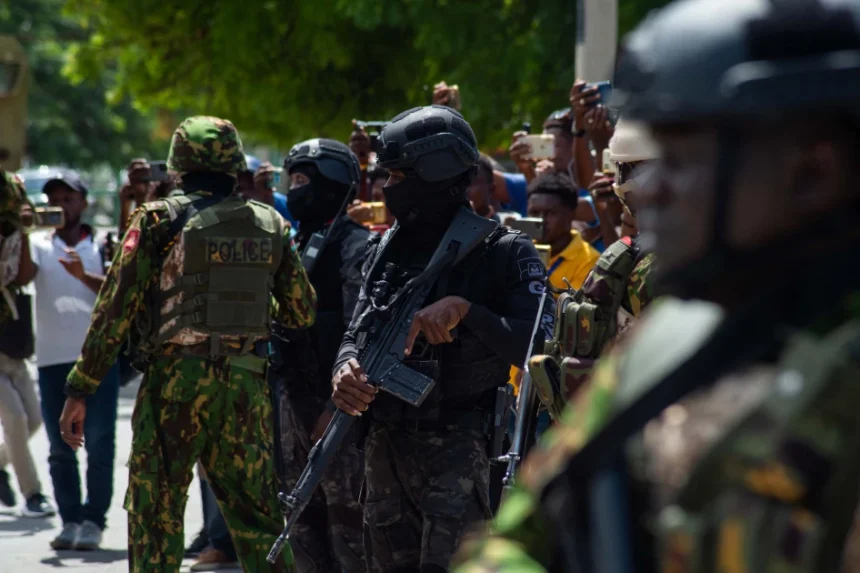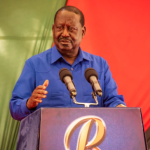The vehicles patrolled the area around the National Palace and other parts of Port-au-Prince with Kenyan forces and Haitian police on board, according to the official, who spoke on condition of anonymity and did not provide details about the objectives of the operation.
Several bangs were heard as the vehicles passed by, according to an AFP journalist, although it was unclear if they were shots fired by police or the armed gangs who control some 80 percent of the capital.
Conille briefly spoke to the nation on Wednesday, saying that “the authorities declared a state of security emergency in 14 communes that are under the control of gangs.”
This “will allow the government to have the necessary tools and instruments to act, confront the bandits and restore the authority of the state,” he said.
Shortly before the premier’s announcement, a government source told AFP that the affected communes would be located in the country’s west and center.
Conille said he had authorized “the national police, the Haitian army and the Kenyan force to launch operations in the affected areas, based on the plans we have established.”
“The final objective is to take back all the areas that are controlled by the gangs, house by house, neighborhood by neighborhood and city by city,” he added.
Kenya stepped up last year to lead the long-sought international force to help Haiti tackle its soaring insecurity.
The UN-approved mission, with an initial duration of one year, will total 2,500 personnel from countries that also include Bangladesh, Benin, Chad, the Bahamas and Barbados.
Kenya has now sent around 400 personnel to Haiti — 200 on June 25 and 200 on Tuesday — with promises of another 600 in the coming weeks.
The United States has ruled out sending forces, but is contributing funding and logistical support to the mission.
Haiti has long been rocked by gang violence, but conditions sharply worsened at the end of February when armed groups launched coordinated attacks in Port-au-Prince, saying they wanted to overthrow then-prime minister Ariel Henry.
The violence in Port-au-Prince has affected food security and humanitarian aid access, with much of the city in the hands of gangs accused of abuses including murder, rape, looting and kidnappings.



